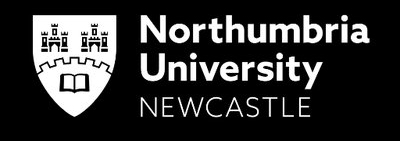Music & Dance courses
Northumbria University, Newcastle

Duration : 3 Years
Intake : Sep
IELTS : 6.0
TOEFL : 0
PTE : 0
University Course Details URL : Visit Website
Level : Undergraduate
Tuition & fees : £ 16,000 Per Year
Northumbria University, Newcastle Contact Details
1 Pace Plaza, New York, NY, 10038, USA
Email: intlgradadmission@pace.edu
Phone: +18667223338
About Music BA (hons) in Northumbria University, Newcastle
Alongside developing your understanding of music, this course will provide you with an in-depth understanding of the richness of music making in the past and the present. You will hone your performance skills to a high level, and follow a distinctive programme that prepares you for a wide range of careers and for freelance work where you may combine performing with teaching and arts administration. You will develop skills – in music theory, techniques of composition and on the keyboard – which you need to succeed as a creative musician in the twenty-first century.
Our approach to performance, history and employability is holistic. You will learn how music is made, how it is consumed, and how it relates to cultural change by studying music from the middle ages to the present day. These historical themes will shape you as a performer who understands audience engagement with music in the past, the present and the future. Our performance and history modules will connect you to the wider city and community, through partnerships with cultural organisations, such as the Samling Institute for Young Artists, the Newcastle Lit & Phil Library and Newcastle Cathedral. We also collaborate with leading national organisations such as Trinity Exam Board and the ISM, and work with local music hubs (which deliver instrumental/vocal teaching in schools) to provide placement opportunities in the music teaching modules.
The degree has been designed alongside a Foundation Year in Music, which offers an opportunity to develop the knowledge and skills needed for degree-level work.
What makes our music degree distinctive is the way in which your real-life work as a musician is prepared through a specially tailored programme in which, in addition to your performing and musicological studies, you will learn how to teach your instrument and how to manage in your career as a musician.
Entry Requirements
-
Standard XII/Class XII from CBSE, CISC with grade 65% and above
English Language Requirements:
International applicants shoud have a minimum overall IELTS (Academic) score of 6.0 with 5.5 in each component (or an approved equivalent).
Northumbria University Campus and Accommodation
Some of the choices available are mentioned below:
| Residence Halls | Cost per week (GBP) |
|---|---|
| Trinity Square | 121.03 |
| Claude Gibb | 78.96 |
| Lovaine Hall | 79.80 |
| Glenamara House | 98.00 |
| Winn | 119.98 |
| Camden Court | 132.25 |
| New Bridge Street | 131.95 |
Know more about Studying in USA
| Tuition Fees in USA (1st Year Average) | BE/Btech: USD 28300 | MS: USD 22693 | BBA: USD 26616 | MBA: USD 29558 | BSc: USD 29418 | MA: USD 20452 | MIS: USD 22133 | MFin: USD 37683 | MEng: USD 29558 | MIM: USD 35301 | MEM: USD 23254 | MArch: USD 34741 | MFA: USD 28857 | BHM: USD 27176 |
| Average Accomodation & Food Costs in USA | USD 700 to 1000 Per Month |
| Entrance Exams in USA | TOEFL: 86 | IELTS: 6.5 | PTE: 60 | GRE: 309 | GMAT: 560 | SAT: 1177 |
| Work and Study in USA | Permitted for 20 hours/week with a valid study permit. Know More |
| Post Study Work Permit in USA | One to Two Years after graduation depending on the course. |
| Cost of Student Visa in USA | USD 160 |
| Student Visa in USA | F1 Visa for USA allows you study permit in USA in full time academic courses. Any accredited school, college, university, academic institute, seminary, or conservatory in USA must accept you beforehand to apply for F1 visa in USA. Know More |
| Intakes in USA | There are Three Intakes in USA: Fall (August-September), Spring (January) Know More |
| Top Job Sectors in USA | Health Care, Education, Construction, Hospitality & Tourism, Business Services, Finance. |
| Economy in USA | GDP Growth of 2.1% (Q4 2019), The Larges Economy of the World by Nominal |